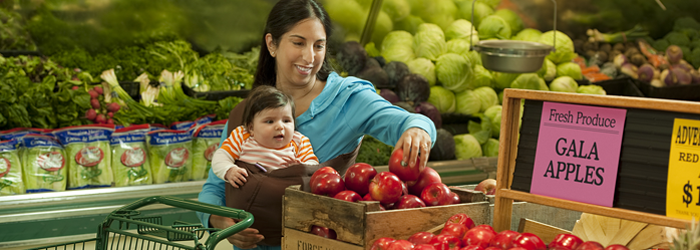Photo ID for Food Stamps Will Fail
By law, merchants can't check cards and new system costly for taxpayers.
As I enjoy Thanksgiving and the rest of the holiday season, I hope I’ll remember the people who struggle to feed their families and need public assistance to meet basic food needs. Unfortunately, the state legislature is working on bills that will make it harder for some people to get public assistance, such as food stamps and unemployment benefits, and that will also be expensive for taxpayers.
No one wants to see any fraudulent use of public programs like unemployment insurance and food stamps (also known as SNAP nationally and in Wisconsin as FoodShare). Because there’s broad public support for eliminating “welfare fraud,” it’s good politics to make a show of fighting the misuse of benefits. Unfortunately, the political popularity of legislation that has the stated purpose of reducing fraud sometimes leads elected officials to pass ineffective welfare reform bills that have considerable cost to taxpayers and harmful effects for the people the programs are effectively serving.
That political dynamic was illustrated in early November when the Assembly passed bills that will do little to deter the small amount of improper use of public benefits, but will have high costs for Wisconsin taxpayers and for some of the people who are eligible for those benefits and need them most.
I am especially concerned about AB 222, which requires FoodShare participants in Wisconsin to use photo ID cards. It is intended to prevent fraudulent use of FoodShare benefits, but it won’t accomplish that because the bill doesn’t authorize merchants to check the cards. That’s because federal law allows friends and family members to use the cards to buy food for the FoodShare participant. Despite not achieving the intended goal, AB 222 would have high costs for taxpayers and program participants:
- It would cost taxpayers $7.4 million for the initial start-up expenses.
- The ongoing administrative costs are estimated by the state to be $2 million per year.
- FoodShare participants would have to go get a photo ID card, and that is likely to be a significant barrier to continued program participation for some of the neediest FoodShare enrollees – the elderly and people with disabilities who are homebound or have other barriers to getting to a government office that issues the new cards.
Apparently the goal of the bill’s proponents is to put pressure on Congress and the next president to allow states to require merchants to check the photo IDs. At first blush, that might not sound like a bad idea, but do we really want federal law to prevent the neighbor or relative of a homebound elderly woman from picking up some groceries for her with her FoodShare card? Precluding that sort of assistance would probably be the biggest human cost of the law, and I wish the floor debate on AB 222 had more thoroughly explored that very problematic goal of the bill’s proponents.
A series of issue briefs released today by the Institute for Research on Poverty makes a compelling case that FoodShare (SNAP) is highly effective in improving food security, reducing poverty, and improving health. It is also a program with only a very small amount of fraud.
It’s quite appropriate to continue to find cost-effective ways to combat the fraudulent use of public benefits. However, AB 222 would accomplish little, if anything, beyond scoring political points for the bill’s authors, and it would have very high costs for taxpayers and for the FoodShare recipients who can’t easily get a photo ID card.






















This would affect my 97-year-old mother exactly as mentioned in the article. She has voted Republican her entire life.
Let me guess- the photo ID’s will not be legal for voting, right? We may have been governed by a more stupid and corrupt cabal in the past, but if so, it escapes my memory when.
Crap. This might impact me from buying $100 foodshare cards for $50 cash.